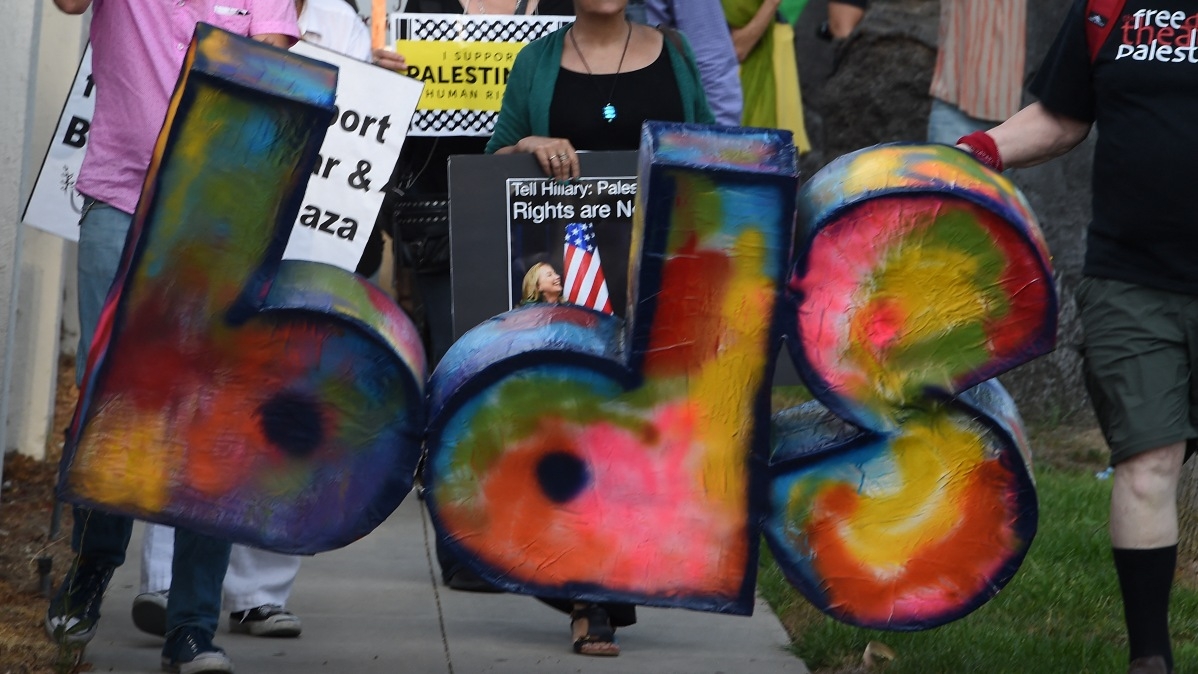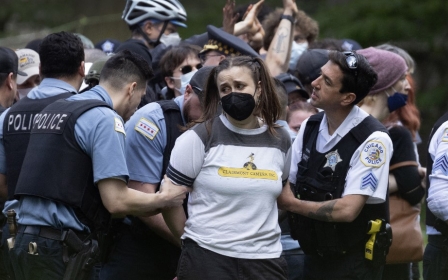US: University of Virginia refuses to divest from Israel despite student referendum

The managers of the University of Virginia’s (UVA) multi-billion-dollar endowment announced on Friday that they will not divest from Israel, a decision taken despite a February referendum passing a pro-boycott, divestment and sanctions resolution targeting Israel.
Students and faculty had been engaged in a divestment campaign since the fall of 2023, among many other college campuses.
UVA’s investment management company, responsible for managing the school’s nearly $14bn endowment, has now officially rejected those calls to withdraw investments from companies linked to Israel on the basis of not “using divestment as a means of expressing political views”, according to Kristina Alimard, the company’s chief operating officer.
During a recent board of visitors meeting, Alimard stated, “We are not divesting from any investments in response to the student referendum that was passed earlier this year.”
She emphasised that the institution’s primary goal is to achieve strong financial returns.
New MEE newsletter: Jerusalem Dispatch
Sign up to get the latest insights and analysis on Israel-Palestine, alongside Turkey Unpacked and other MEE newsletters
Over 8,000 students voted in the referendum calling for full divestment from Israel in the university's $13.6bn endowment in companies “that engage with or profit from Israel's apartheid regime and its acute violence against Palestinians”.
More than two-thirds of the voters supported the measure.
Virginia attorney general Jason Miyares later urged the board to dismiss these calls, in light of the 7 October Hamas-led attacks on southern Israel in October 2023.
Miyares described the Boycott, Divestment and Sanctions movement in a March letter to the board as an “existential threat to the Jewish state”, and criticised its proponents for not equally condemning violence against Jewish individuals.
Miyares reinforced the urgency of addressing antisemitic incidents at the university, adding, “The fact that a majority of young Americans surveyed feel that terrorism might be ‘justified’ indicates a moral compass veering dangerously towards the rocky shoals of antisemitism.”
In May, Matan Goldstein, a Jewish undergraduate student, filed an 80-page federal lawsuit against UVA, its president, and two pro-Palestinian organisations, saying he experienced hate-based discrimination and severe harassment on campus.
Goldstein alleged he was physically and verbally assaulted due to his Jewish identity and dual American-Israeli citizenship, particularly during a protest where he displayed Jewish symbols.
The lawsuit contends that university officials failed to protect him and accuses faculty members of incentivising attendance at anti-Israel rallies. He now seeks a jury trial and damage reparations.
In response to the latest concerns about the university’s refusal to divest, CEO Robert Durden said, “We do not like using our investment strategy as a means of expressing a moral [or] political opinion.”
In response to student protests, several universities globally have engaged in a boycott of Israeli universities and exchange programmes.
On 21 May, the University of Helsinki in Finland suspended student exchanges with Israeli universities. A month later, Belgium's Ghent University severed ties with all Israeli universities and research institutions, stating that the partnerships no longer aligned with the university's human rights policy.
Following a vote by the University of Barcelona's senate in May, the university broke all institutional and academic ties with Israel, including research institutes, companies, and other institutions in the country.
In the US, the University of California, Riverside, indefinitely suspended all study abroad programmes with Israel. The university also agreed to form a task force to "explore the removal of investments and endowments of companies involved in weapon manufacturing", the agreement read. The task force will present a report to the board of trustees by the end of the winter quarter of 2025.
California's Pitzer College also dropped its study abroad programme at the University of Haifa in Israel from its list of pre-approved programmes.
Middle East Eye delivers independent and unrivalled coverage and analysis of the Middle East, North Africa and beyond. To learn more about republishing this content and the associated fees, please fill out this form. More about MEE can be found here.




